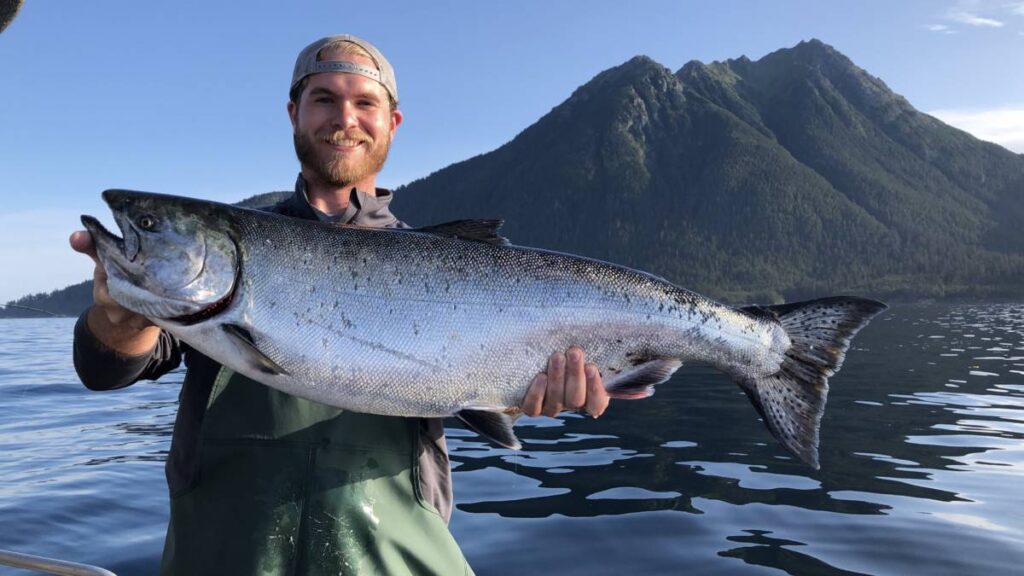When the Resources Disappear

The issues around the king salmon in Alaska is something we see around the world over and over again. Basically, what happens when a natural resource economy supporting many livelihoods run up against declining totals and the collapse of the ecosystem also using those resources?
In the waters of Puget Sound outside Seattle, 73 beloved and endangered orcas, known as the Southern Residents, are on the hunt, clicking. Using sound like a searchlight, they patrol the chilly depths. When they locate a target, they dive, sinking sharp white teeth into their preferred food, the fatty coral-colored flesh of king salmon.
But in recent weeks, this ancient rhythm of the Pacific Northwest was being negotiated not just at sea but also in a federal courtroom in downtown Seattle, where on May 2 a district court judge issued an order effectively shutting down Alaska’s biggest king salmon fishery, one of the largest remaining in the world.
To the Wild Fish Conservancy, the Washington State-based environmental group that filed the lawsuit, the fates of the two totemic animals are intimately bound. The orcas need the salmon to eat, and if we stop fishing them, the conservancy argues, we save the whales.
But the State of Alaska, the National Marine Fisheries Service and the Alaska Trollers Association — all defendants in the suit — argued that shutting down the fishery would have little impact on either, and won a last-minute reprieve that allowed Alaska fishermen to put their lines in the water when the season began on July 1. The Ninth Circuit Court of Appeals in San Francisco will decide what happens next.
Regardless of the lawsuit’s outcome, though, there is broad agreement that the king salmon, also known as Chinook, are in crisis. After decades of environmental pressures like dams and pollution, the king populations are at historic lows, and scientists are struggling to understand the escalating effects of climate change. The fish are also smaller than they have ever been. Gone are the taxidermied 70-pounders that ended up on the walls of fisherman’s bars.
Some argue that the only way to save the species is to stop catching and eating them at all — if even that would be enough.
“Everyone is fighting each other for the last king salmon,” said Mark Stopha, a retired fish biologist with the state Department of Fish and Game and a longtime fish seller in Juneau. “It’s something a lot bigger than fisheries management — there’s something that’s going on with the changing climate. We know the ocean’s getting warmer.”
While kings make up less than 1 percent of Alaska’s wild catch, they are the official state fish because of their wide-ranging economic importance, a vivid symbol of Alaska, with its cool waters and pristine habitat. Sport, commercial and subsistence king fishing has sustained generations of rural communities. The fish are central to Alaska Native culture.
This is the Northwest’s spotted owl and ancient forest crisis all over again. There’s really no answer that can solve the problem or please anyone. Given the politics of the early 21st century, it’s hard to say which side will win out in the legal battles. But the king salmon and orcas are going away no matter what.
Isn’t the human-caused Sixth Extinction fun?


